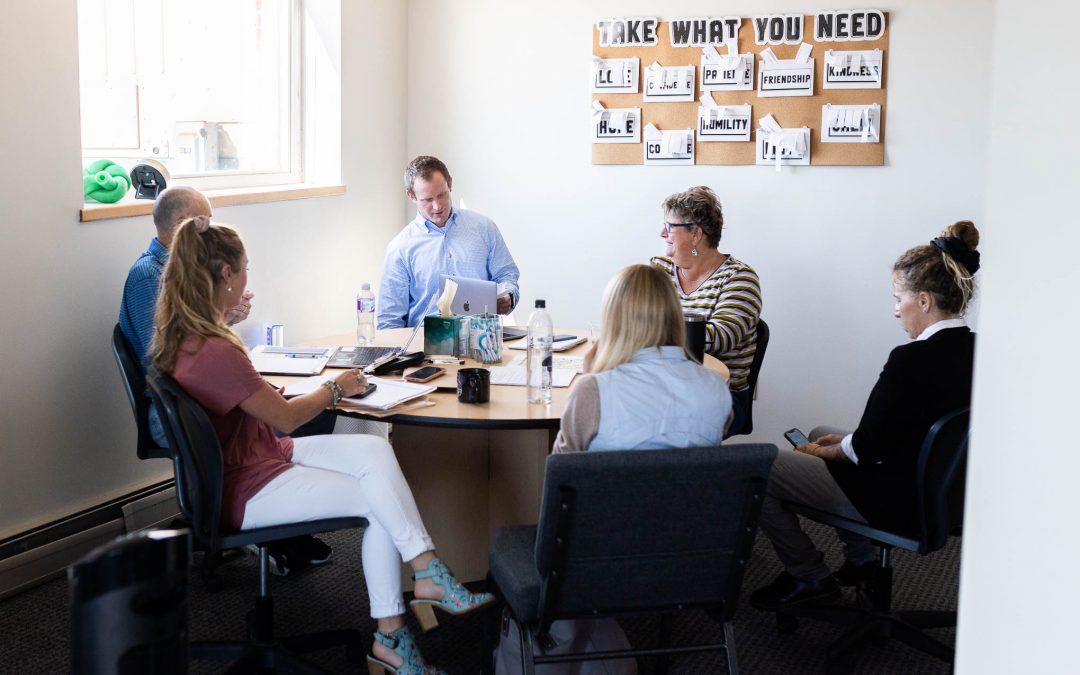Substance use disorder can separate us from the world; however, we do not have to be alone in recovery. Frankly, it’s unlikely that we will remain clean and sober alone. An important ingredient for long-term recovery from substance use disorder is participating in peer support groups. While outpatient facilities can be a helpful stepping stone after inpatient treatment, they are not a permanent solution. It’s suggested that participants at River Rock Treatment build an outside support system so that when it’s time to transition out, a foundation is already built and a community to turn to for a better chance at long-term sobriety.
Active addiction can be a hopeless, isolating, and lonely place. These recovery support groups can provide hope, connection, and perspective. For many struggling with substance use disorder it can feel as though no one understands; however, there is a group of people who have experienced the pain that comes with putting a substance above all else and who are now living sober.
Joining a community of people who have hit bottom and were at one time in active addiction can be uniquely encouraging and hold newly sober individuals accountable without judgement or misunderstanding. Engaging in a recovery community can be a process of discovering self-acceptance and self-love, working through shame and guilt, and changing old belief patterns.
If alcohol and drugs were a solution for dealing with life (the good, the bad, the uncomfortable and everything in between) then new tools are required for lasting change. For the substance user to take away the substance creates a new challenge on how to live sober. Support groups can be a key resource in creating sober experiences and references.
Support groups can offer a safe space to experiment with how to socialize sober, find new hobbies, form, and repair relationships, how to live an honest, morally aligned life, how to make mistakes and celebrate successes all without picking up a substance. These types of groups give someone with substance use disorder a place to go, opportunities to be of service and help create a sense of purpose.
Recovery support groups provide the framework for building a strong foundation for long term sobriety. Just as there is a wide variety of people afflicted with substance use disorder, there are many different types of groups. Here are a handful of some of the most popular recovery support groups available in person and online:
12 step groups:
Alcoholics Anonymous – Started in 1935 for those with a desire to stop drinking.
Narcotics Anonymous – Formed in 1953 for those with a desire to stop using narcotics.
celebrate recovery – Christian based 12 step recovery founded in 1991.
Non-12 step groups:
Secular Organizations for sobriety started in 1985 as a secular peer run nonprofessional group for alcoholics. Their program uses a Sobriety Toolkit and encourages connection with other alcoholics.
Life Ring Personal Recovery Program was established in 2001 after Secular Organizations for Sobriety and follows a similar mentality.
SMART Recovery came into the picture in 1994 and stands for Self-management and recovery training. The program encourages changing thought patterns and aligning actions with morals and is based in Rational Emotive Behavioral Therapy (REBT) and Cognitive Behavioral Therapy (CBT)
Refuge Recovery: Started in 2010 as a Buddhist approach to healing addiction and suffering. The program is based on 4 truths, and an eightfold path, all centered around meditation practice.
Dharma: A more recent group started in 2019 is a peer run community inspired by Buddism and strongly integrates a meditation practice for those with substance use disorder.
Phoenix: Started in 2006 this group is a sober, active community of peers. It enables addicts to find connection through activities and hobbies- from yoga to cross fit to book club.
Women For Sobriety started in 1975 as a “New Life Program” and consists of thirteen Acceptance Statements where women in addiction can get support.
Wellbriety Movement is a sobriety community for Indigenous people.


Recent Comments